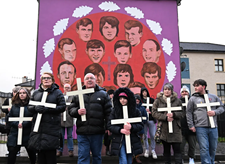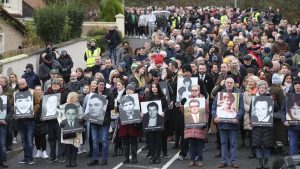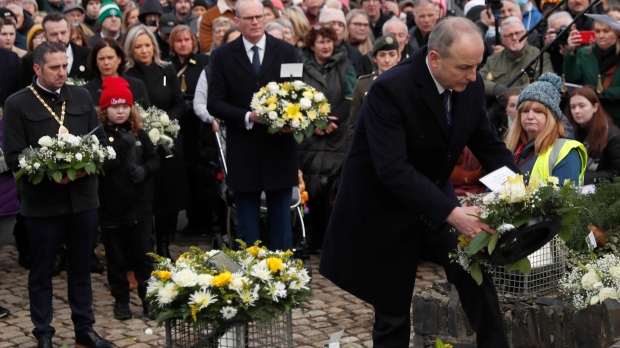Remembering Bloody Sunday Fifty Years Later
Nicholas Parmi
International News Writer
Hundreds of people gathered in the Creggan neighborhood of Derry, Northern Ireland for the 50th anniversary of Bloody Sunday, a massacre where British soldiers shot 28 unarmed citizens during a protest march.
On the morning of January 30, 1972, over 15,000 people gathered to participate in a civil rights march. A new law was enacted providing the government the right to jail individuals without trial, internment, and was then executed against the backdrop of growing violence in Northern Ireland. The administration had come to the conclusion that it was time to restore order. Soldiers from the Parachute Regiment rushed in to make arrests after continuous confrontations between groups of youngsters and the Army. They began to shoot on the crowd, leaving 13 killed and 15 wounded.

This day was a flashpoint in what is known as The Troubles, a series of events and conflicts spanning roughly 30 years involving Northern Ireland’s Catholic and Protestant groups as well as the British Army. Centered around political and nationalistic ideals, it focused largely on whether Northern Ireland should remain part of the United Kingdom or break off to join a unified Ireland. The protest on Bloody Sunday was focused on addressing discrimination against the Catholic minority by the Protestant majority. The Troubles would not come to an end until 1998 with the Good Friday Agreement, a pair of agreements between the British and Irish governments on how Northern Ireland should be governed.
More than two decades later, as part of the peace process, British Prime Minister Tony Blair declared that a fresh inquiry, led by Lord Saville, would be undertaken. It began in 1998 and ended in 2010, becoming the longest-running legal enquiry in British history which cost nearly £200 million. The investigation concluded that none of the victims posed a threat or did anything that would justify their shooting. Thousands upon thousands of pages were reviewed in a murder inquiry once the report was released. On March 14, 2016, prosecutors said that there would be a charge for the killings of James Wray and William McKinney after weighing 125,000 pages of evidence. In a turn, “Soldier F” would not stand trial as a result of a decision by the Public Prosecution Service on July 2, 2021.

On January 30th of this year, family members and citizens of Derry took part in a commemoration walk, following the original march’s path. Crowds gathered at the Bloody Sunday Monument for a wreath-laying service, which included Irish Premier Michael Martin. “The families of victims should always have primacy in terms of policy considerations and in terms of dealing with the past,” he said. “I don’t believe there should be amnesties for anybody, I believe the full process of the courts and justice should be deployed.”
Although this event occurred half a century ago, people remain adamant about remembering those who protested on that day. The overall message is to cherish and embrace history for what it is. Accountability in any sense is a strong notion that many take note of despite the fact it might not affect their day to day life.
Contact Nicholas at nicholas.parmi@student.shu.edu

